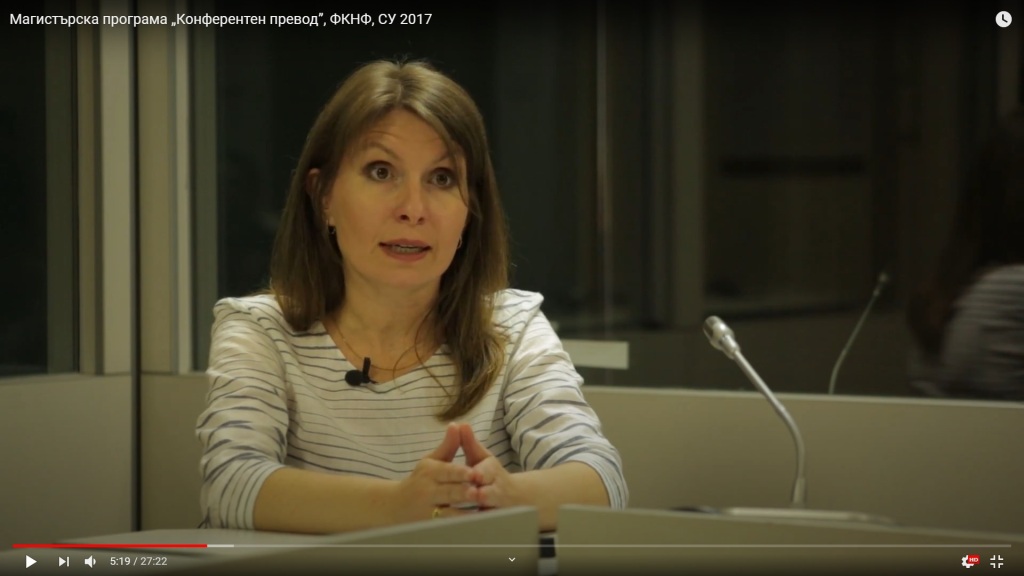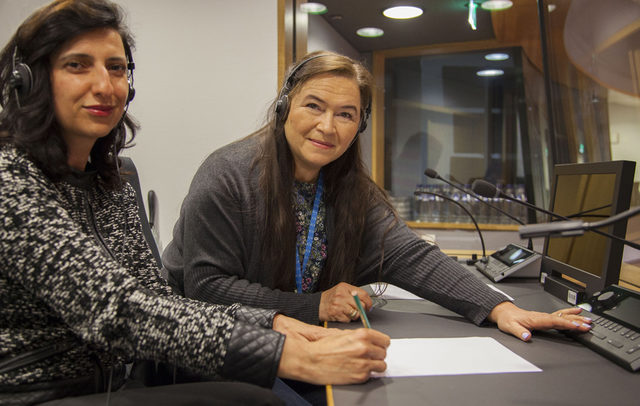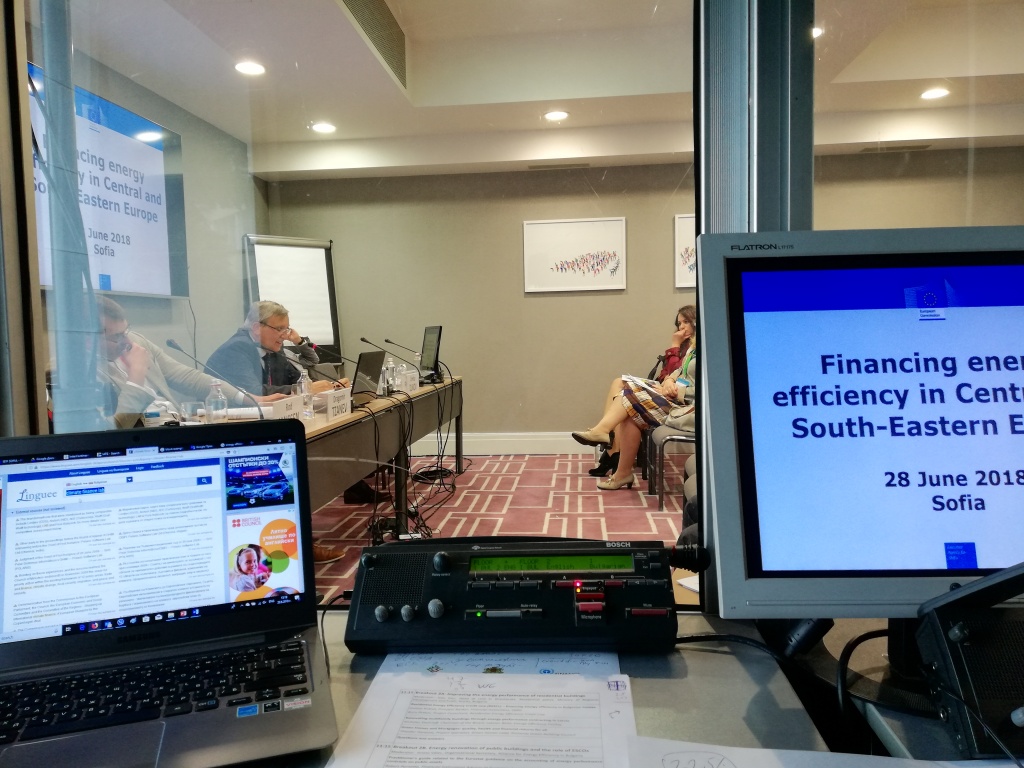Who we are
The School for Conference Interpreters is part of the Faculty of Classical and Modern Philology at Sofia University St. Kliment Ohridski and the only school in Bulgaria with fifteen generations of established interpreters in the institutions of the European Union and on the Bulgarian market. Training takes the form of a one-year practice-oriented Master's Degree Conference Interpreting Programme. Created with the support of the European Commission's Directorate-General for Interpretation, the School opened doors in 2002.

What we do
The Conference Interpreting Master's Degree Programme aims to prepare conference interpreters both for the needs of the EU institutions and the local market.
The Programme is organised in accordance with the standards of the recognised European interpreting schools and the requirements of the European institutions, in particular the European Commission and the European Parliament.

What is conference interpreting?
Conference interpreting is a kind of professional interpreting, provided as a service at conference events or institutions at international level. Such events could include seminars, conferences, round tables, group trainings, and public ceremonies. Organisations regularly using interpretation include EU institutions, the UN, NATO, the OSCE, state institutions, sectoral organisations, non-governmental organisations and private clients.
There are different ways of providing interpreting. Simultaneous interpreting is perhaps the most famous – the interpreter works in a sound-proof booth with headphones and interprets at the same time as the speaker delivers the speech, while the audience is listening to the interpretation via receivers. Another common interpreting mode is the consecutive, in which the interpreter and the speaker take turns speaking.

Interpretation requires specific skills, other than those required for translation. To start with, the high level of language competence and knowledge of the cultures of the regions in which the relevant languages are spoken is a must. Interpretation, however, also requires the acquisition and development of specific working techniques, communication skills, ability to work under stress, quick reactions, teamwork, note-taking skills, ethical behaviour, etc.
